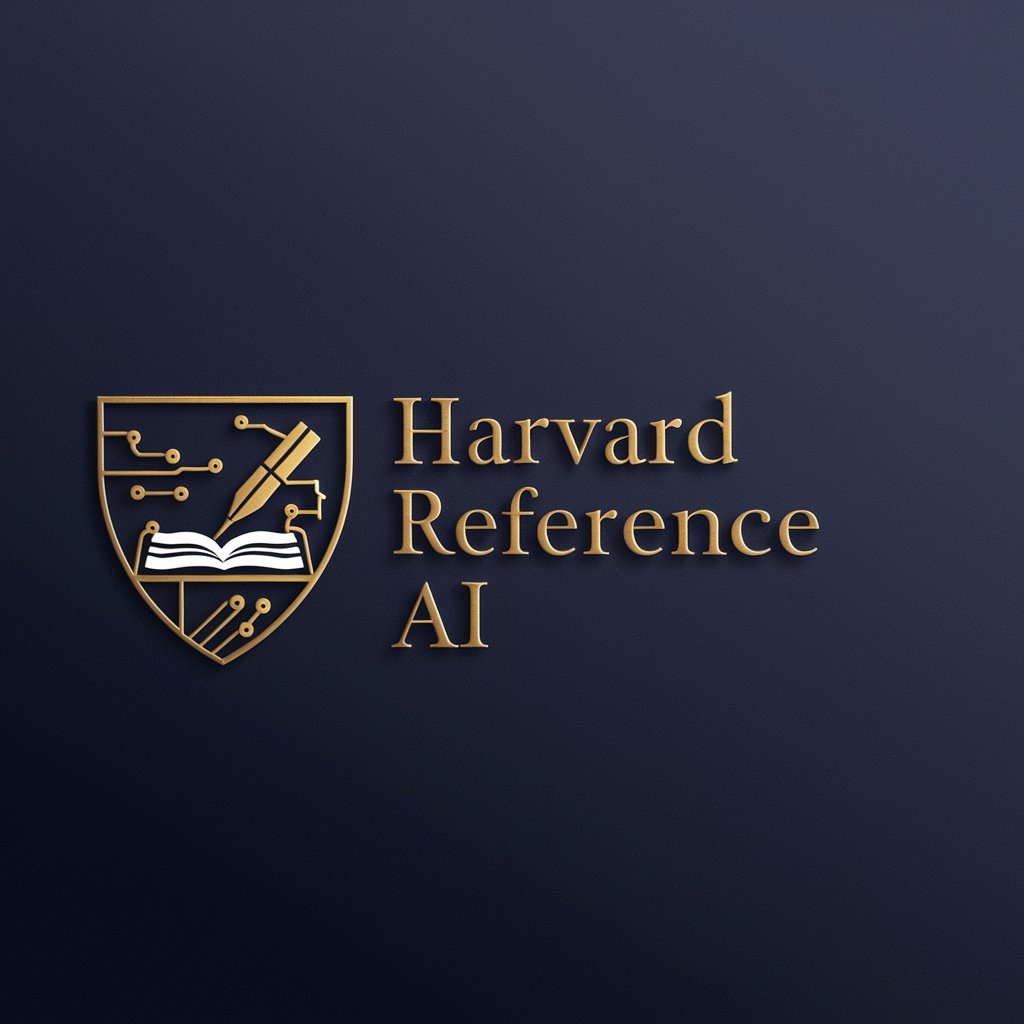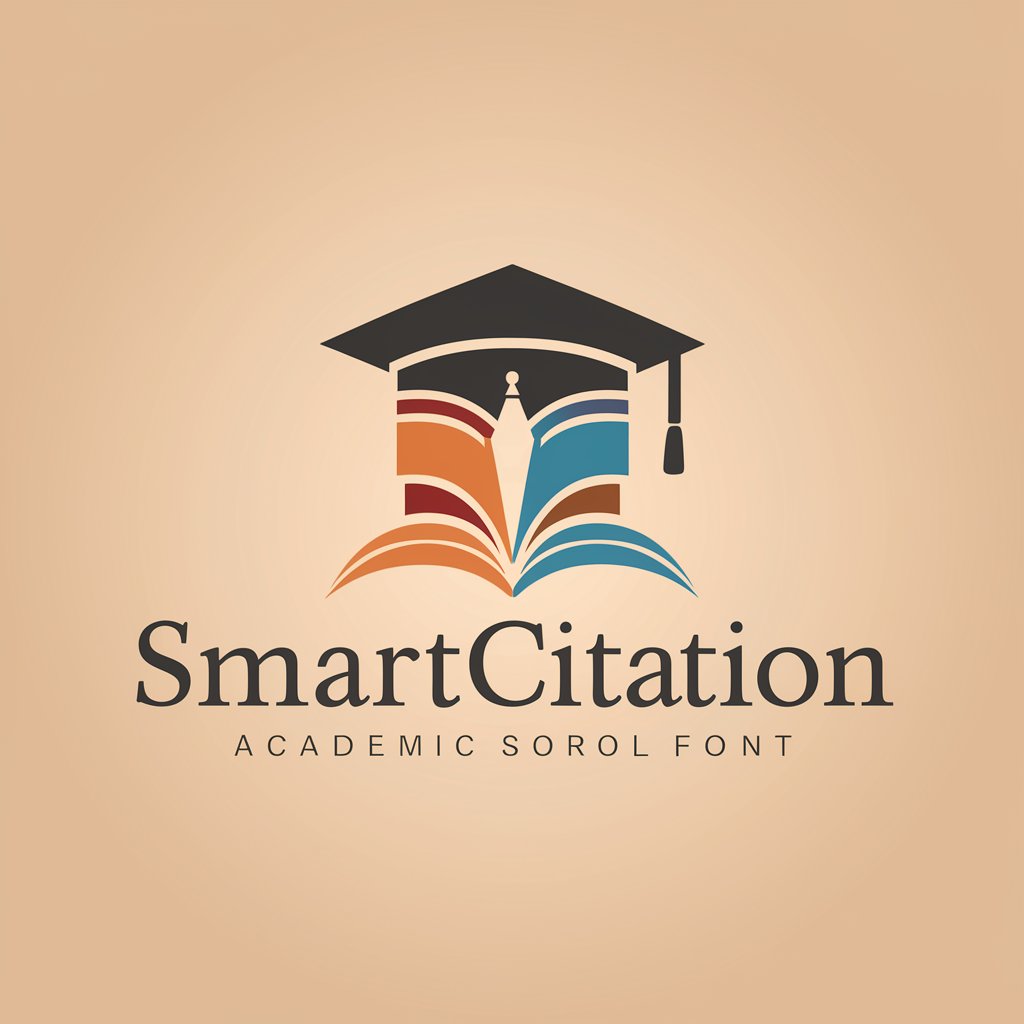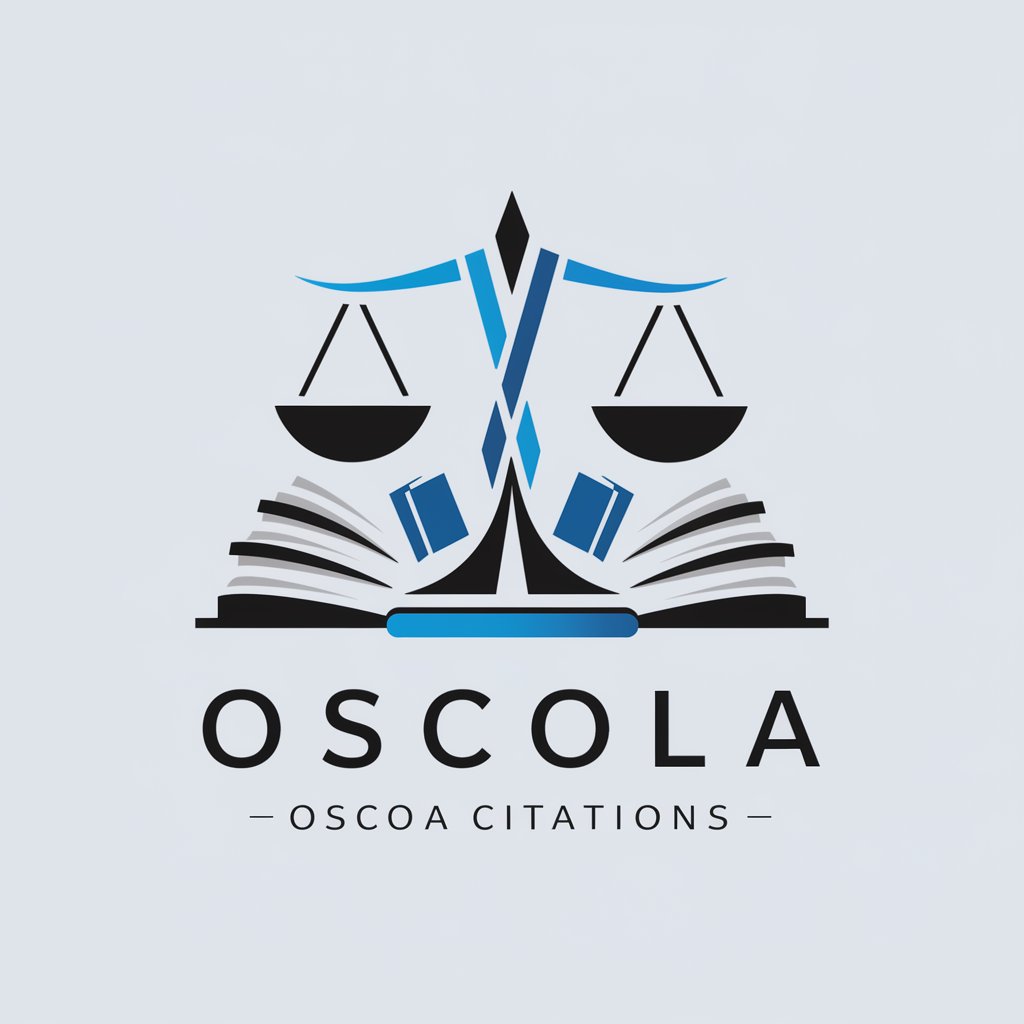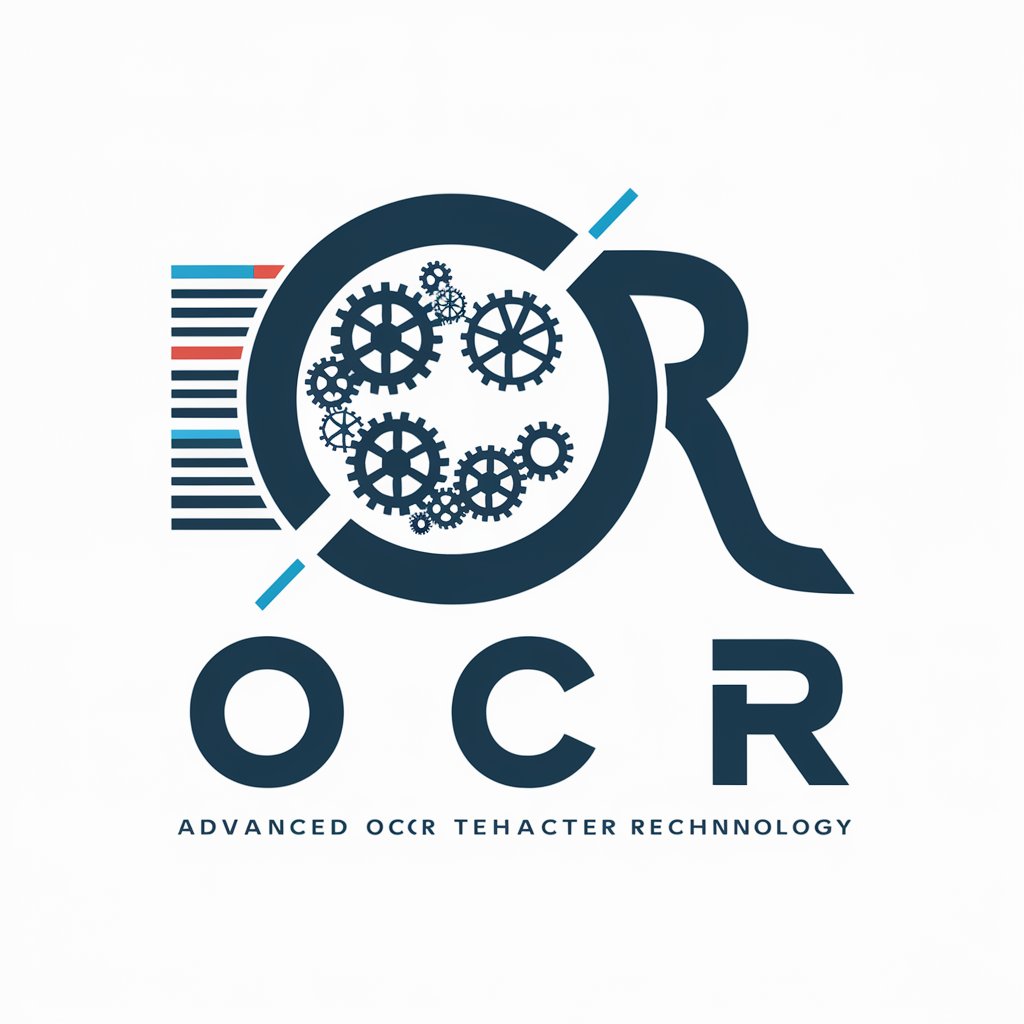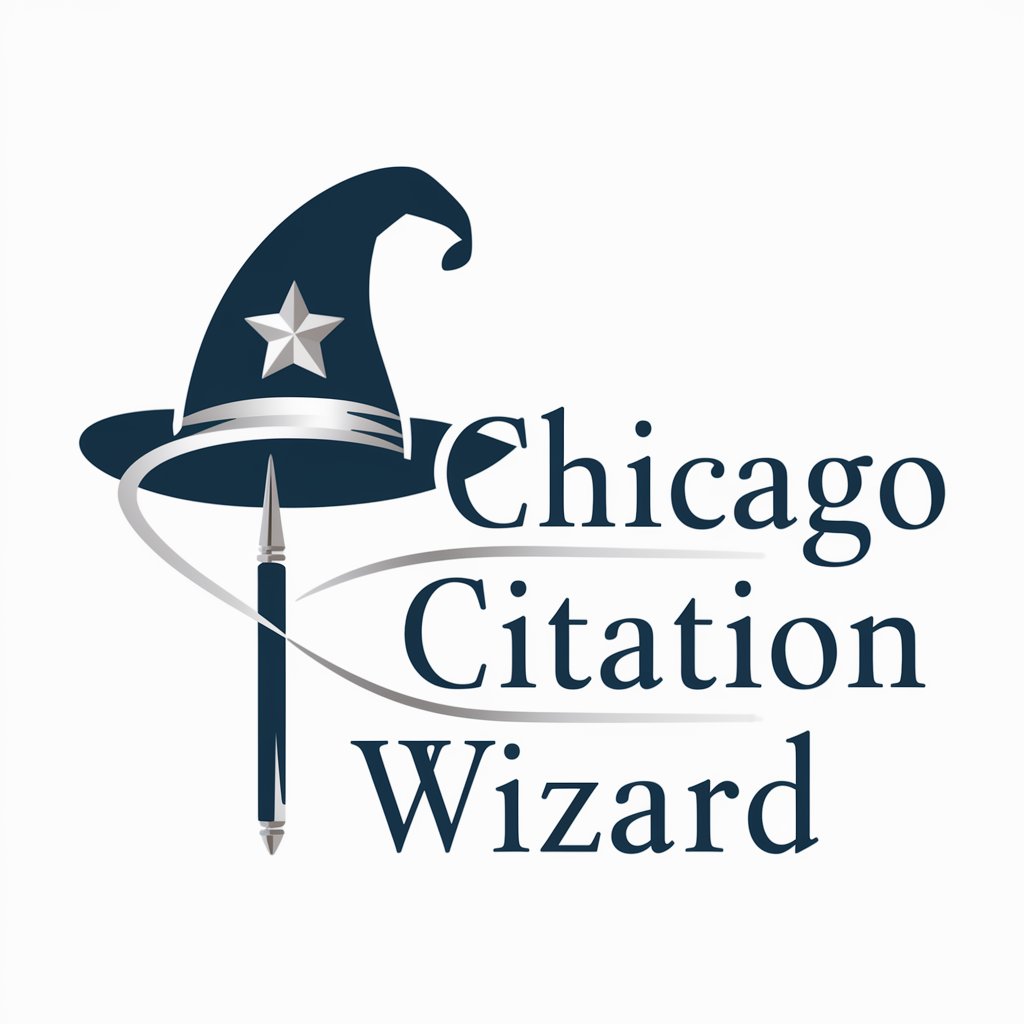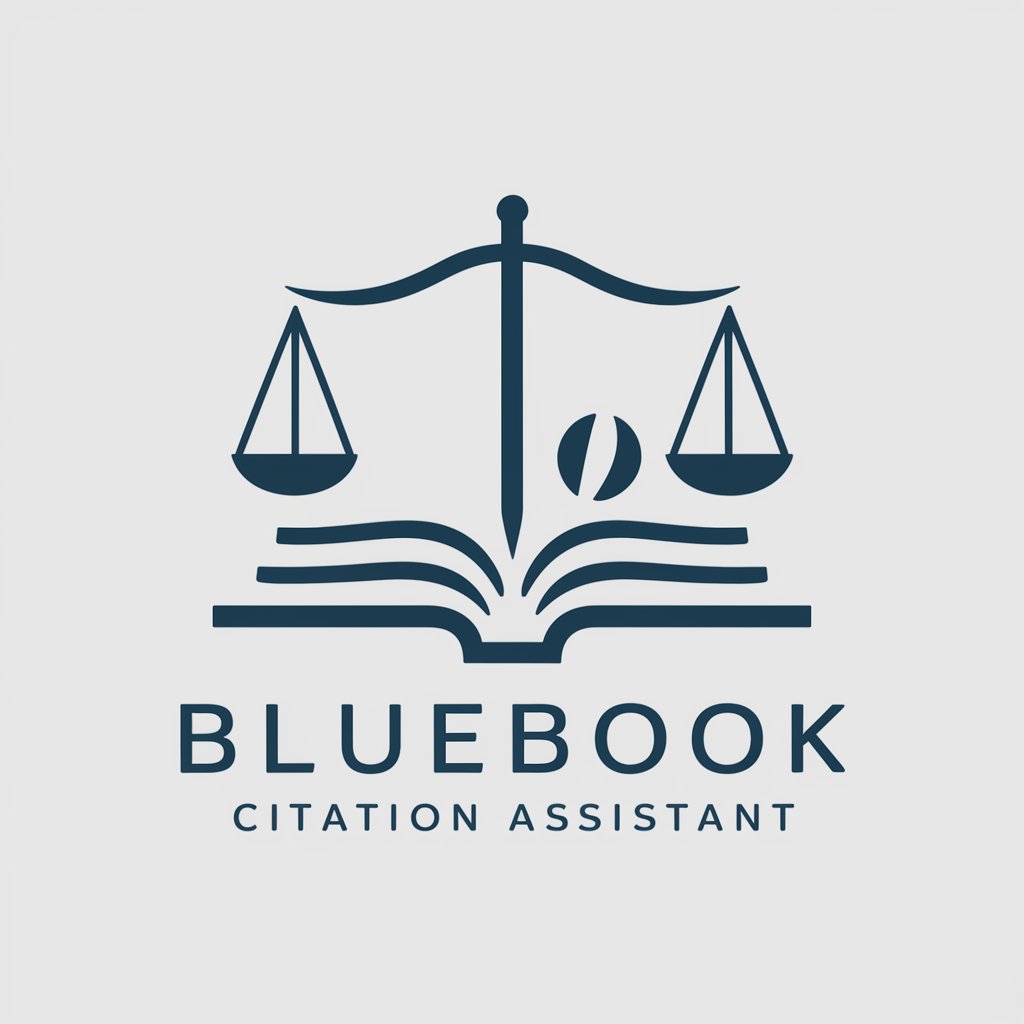
oscola - OSCOLA Citation Tool
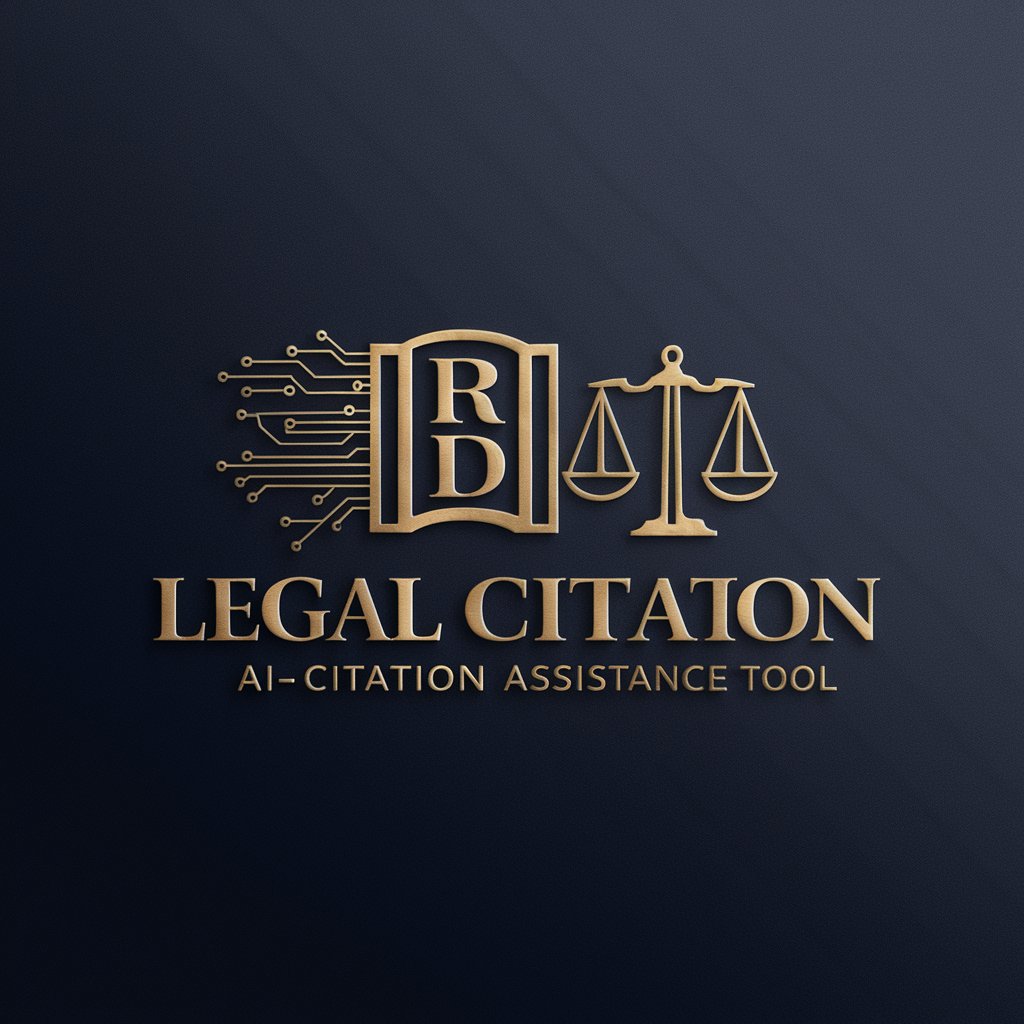
Hello! How can I assist you with OSCOLA citations today?
Streamline Legal Citations with AI
Can you help me format this legal citation in OSCOLA style?
I need to convert my references into OSCOLA format, can you assist?
How should I cite this legal source according to OSCOLA guidelines?
Can you provide the correct OSCOLA citation for this journal article?
Get Embed Code
Understanding OSCOLA
The Oxford Standard for the Citation of Legal Authorities (OSCOLA) is a citation style specifically designed for legal documents. It is widely used in the UK and other jurisdictions to provide a standardized method for legal professionals and scholars to reference legal sources such as cases, statutes, and academic works. OSCOLA helps ensure clarity, uniformity, and comprehensiveness in legal writing. For example, a case citation under OSCOLA includes party names, neutral citation, and Law Reports citation, as seen in 'Corr v IBC Vehicles Ltd [2008] UKHL 13 [2008] 1 AC 884', ensuring that references are easily traceable. Powered by ChatGPT-4o。

Key Functions of OSCOLA
Case Citation
Example
R (Roberts) v Parole Board [2004] EWCA Civ 1031 [2005] QB 410
Scenario
Used by legal practitioners and academics to provide precise and standardized references for legal cases within scholarly works or court documents.
Legislation Citation
Example
Human Rights Act 1998 s 15(1)(b)
Scenario
Utilized in drafting legal arguments and academic discussions to refer to specific sections of statutes accurately, crucial in legislative analysis or court arguments.
Journal Article Citation
Example
Paul Craig ‘Theory “Pure Theory” and Values in Public Law’ [2005] PL 440
Scenario
Academic researchers use this function to cite legal analyses or commentary from journals, which helps in building theoretical frameworks or literature reviews.
Who Benefits from OSCOLA?
Legal Academics and Students
This group benefits from OSCOLA as it provides a systematic approach to citation which is essential for writing theses, dissertations, and scholarly articles.
Legal Practitioners
Lawyers and judges use OSCOLA to ensure that legal documents, such as briefs and judgments, are accurately referenced, maintaining professionalism and adherence to legal standards.

Detailed Steps for Using OSCOLA
1
Visit yeschat.ai for a free trial without login, also no need for ChatGPT Plus.
2
Familiarize yourself with the OSCOLA documentation to understand the different citation formats required for cases, legislation, books, and articles.
3
Start formatting your references by identifying the type of source (e.g., case law, statute) and follow the specific citation rules for each source type as outlined in the OSCOLA guidelines.
4
Use the OSCOLA referencing tools or software plugins where available to automate some of the formatting process, ensuring consistency and accuracy in your citations.
5
Proofread your references carefully to ensure they comply with OSCOLA standards, paying close attention to details like punctuation and the order of elements in each citation.
Try other advanced and practical GPTs
Correcteur Français
Perfect Your French with AI

IT Projects Roadmap Builder
Strategize IT with AI-Powered Planning

English Proof Reading for Business
Enhancing Business Communication with AI

Scroll - Create Your Irresistible Offer
Craft Compelling Offers with AI

Asclepius 2.0
Revolutionizing Personal Health with AI
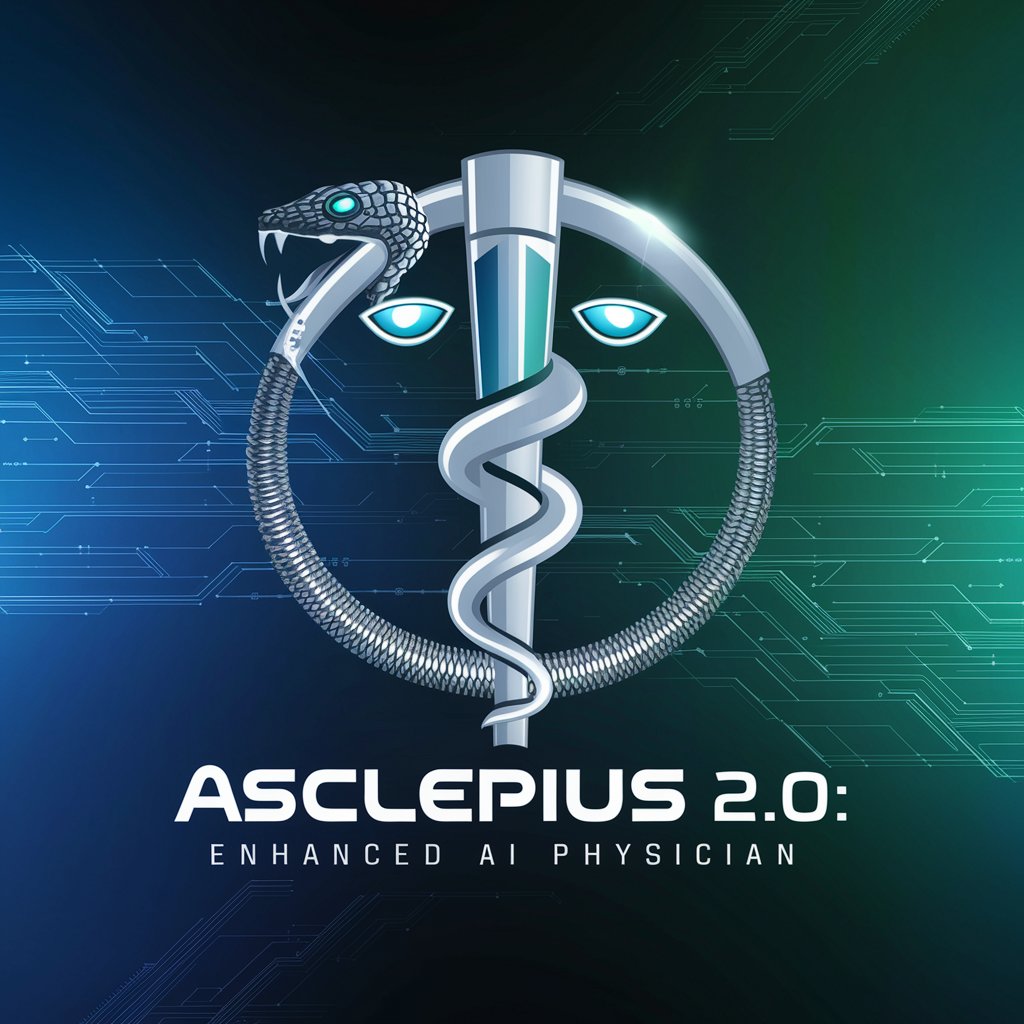
Ascend
Power Your Garry's Mod with AI
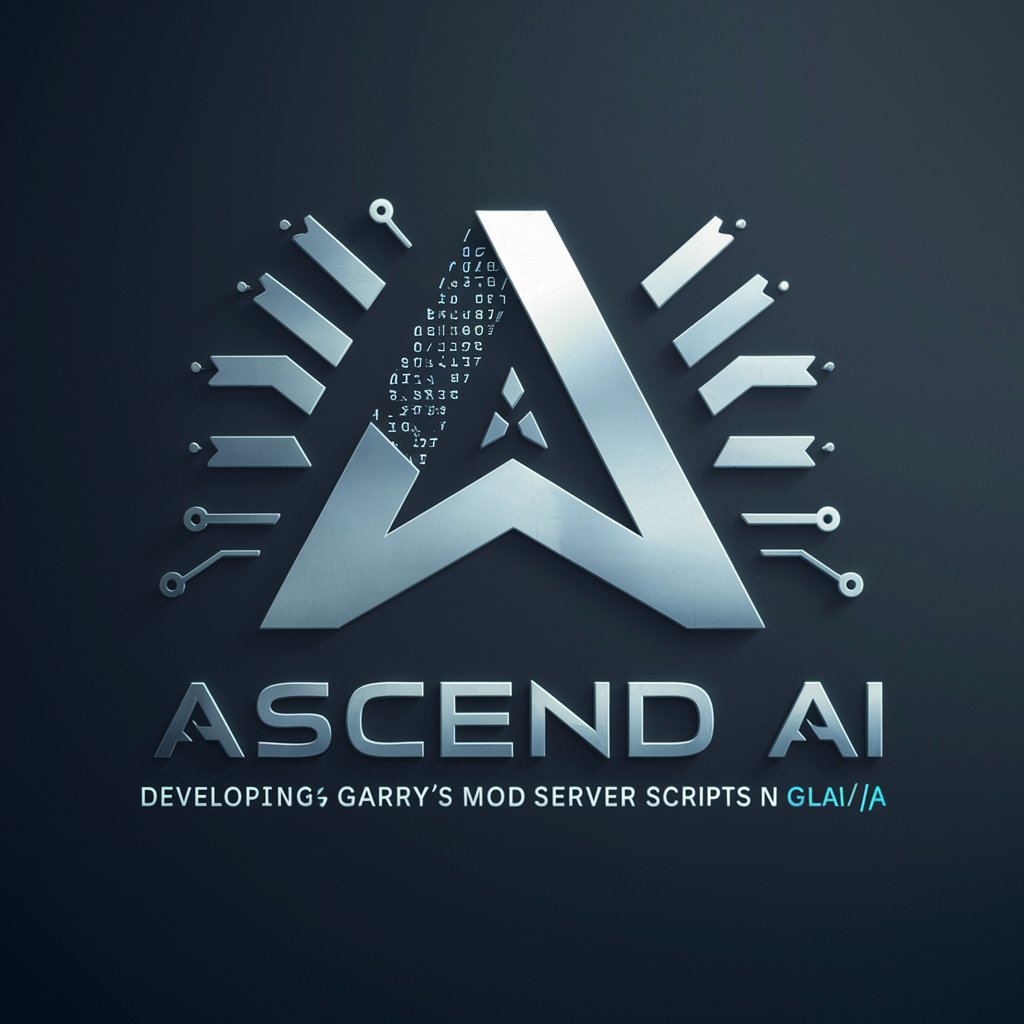
Pythoneer
Empower Your Code with AI

Perfect Resume
Tailor Your Resume, Land Your Dream Job

HomeAssistant Helper
Empowering Your Smart Home with AI

AutoAI (Dev)
Revolutionizing code generation with AI power

Eliel Theodorus Castellion
Deepen your theological understanding with AI-powered guidance.
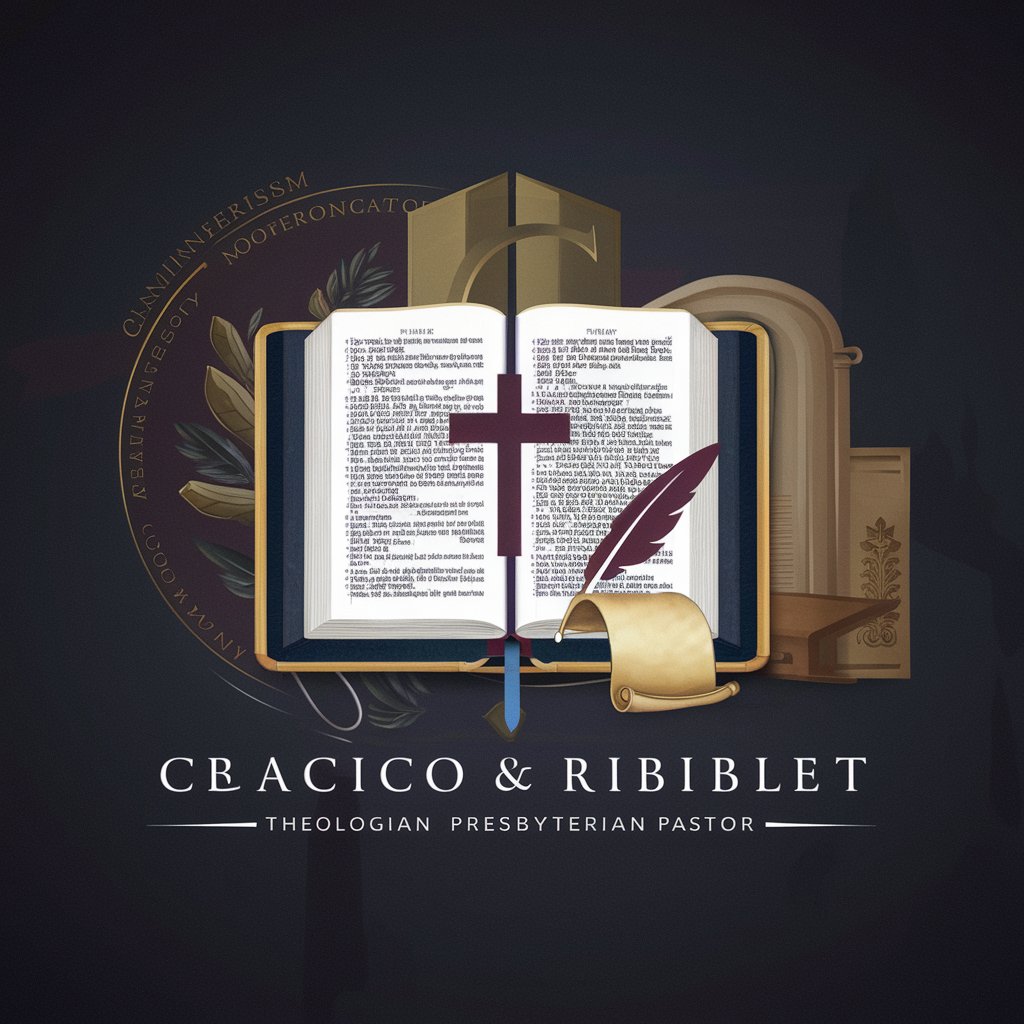
Lean Six Sigma simplified
Streamline Quality Improvement with AI

Detailed Q&A about OSCOLA
What is OSCOLA and why is it used in legal writing?
OSCOLA, or the Oxford Standard for the Citation of Legal Authorities, is a citation style specifically designed for legal documents. It is used to maintain clarity and uniformity in legal writing, allowing readers to locate and verify sources efficiently.
How does one cite a case using OSCOLA?
In OSCOLA, cases are cited by giving the party names, followed by the neutral citation, then the law reports citation. If no neutral citation is available, cite the most authoritative report series available.
Can OSCOLA be used for non-legal documents?
While OSCOLA is specifically designed for legal documents, its clear and structured format can be adapted for academic writing in other disciplines that require precise source referencing.
What are some common mistakes to avoid when using OSCOLA?
Common mistakes include using incorrect punctuation, failing to provide complete information for citations, and using the wrong format for different types of legal sources.
Are there any online resources to help with OSCOLA citation?
Yes, there are several resources available online including the OSCOLA website, interactive guides from university libraries, and citation software tools that offer templates and examples for OSCOLA formatting.
